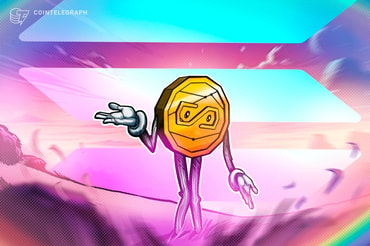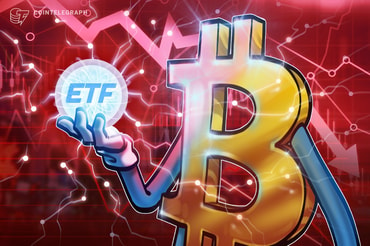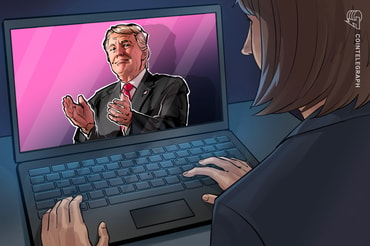How Might Donald Trump’s Crypto Token Fit Into Regulations?

The former president of the United States is launching a crypto yield product, even as he appeals to the crypto industry in his current bid for office. Donald Trump will be the “chief crypto advocate” for World Liberty Financial, a venture that has offered scant hints so far about what it will actually do.
You’re reading State of Crypto, a CoinDesk newsletter looking at the intersection of cryptocurrency and government. Click here to sign up for future editions.
Crypto is trying to make an impact this election cycle. Now, one of the leading contenders for President of the U.S. is tied to a forthcoming crypto venture.
There’s one pretty interesting question: how should the former president and current Republican nominee think about securities and anti-money laundering laws as he prepares to lend his name to a crypto project?
Former President Donald Trump will be the “chief crypto advocate” for World Liberty Financial, a project seemingly based on Dough Finance and featuring his three sons and a host of other individuals in key roles, according to scoops by my colleagues Danny Nelson, Cheyenne Ligon and Sam Kessler this week.
A draft white paper seen by CoinDesk suggests that World Liberty Financial will sell 30% of the WLFI tokens generated, with the remaining 70% held by founders, service providers and other team members.
I want to focus on this part, as it raises some interesting regulatory questions. Trump, of course, has spent the past few months campaigning to crypto voters, making promises about installing industry-friendly regulators and making the U.S. the “crypto capital of the planet” in various public remarks.
This friendly stance, at odds with his opposition to crypto when he was actually in office, may end up benefiting him personally, given the forthcoming World Liberty Financial launch.
The major caveat here is that CoinDesk has seen draft documents; the final project may differ from what CoinDesk has reported on.
In the document CoinDesk did view, however, one common refrain has been that a 70% allocation toward existing project developers is relatively large, compared to other crypto projects.
The white paper also has a non-transferability clause, seemingly to prevent resales or suggest that investors can profit off of the tokens, at least at launch.
This alone would not be enough to bypass securities laws, said Dave Rodman, the founder and managing partner at Rodman Law Group.
“If all that happens is that people buy tokens that are ‘locked,’ nothing has been done to reduce exposure to US securities laws if Americans purchase the token,” he said.
It’s also unclear, at least so far, who exactly controls the wallets, said Alexandra Damsker, an attorney and consultant.
How the 70% retained is broken down is also unclear – whether each developer and project leader will receive an equal allocation or not.
WLFI is a governance token. Holders with some yet-to-be-defined minimum number of tokens can propose protocol changes or other suggestions, and all holders can vote using up to 5% of the total number of token supply. While the paper suggests this will “ensure fairness and distributed participation,” any aligned group that holds a majority of tokens may be able to influence these proposals.
The white paper also included a line about screening purchasers to comply with sanctions regulations.
The project will be a key target for attackers. We’ve already seen this, when X (formerly Twitter) accounts tied to Lara (Eric Trump’s wife) and Tiffany Trump (one of Donald Trump’s daughters) were hijacked this week to shill random addresses. Eric Trump tweeted that those addresses were a scam, prompting further confusion from people who couldn’t tell if this meant that World Liberty Financial itself was not real or just the addresses (to be clear: World Liberty Financial is a real project; those addresses were not part of it).
Wednesday
Thursday
If you’ve got thoughts or questions on what I should discuss next week or any other feedback you’d like to share, feel free to email me at nik@coindesk.com or find me on Twitter @nikhileshde.
You can also join the group conversation on Telegram.
See ya’ll next week!
Disclosure
Please note that our privacy policy, terms of use, cookies, and do not sell my personal information has been updated.CoinDesk is an award-winning media outlet that covers the cryptocurrency industry. Its journalists abide by a strict set of editorial policies. In November 2023, CoinDesk was acquired by the Bullish group, owner of Bullish, a regulated, digital assets exchange. The Bullish group is majority-owned by Block.one; both companies have interests in a variety of blockchain and digital asset businesses and significant holdings of digital assets, including bitcoin. CoinDesk operates as an independent subsidiary with an editorial committee to protect journalistic independence. CoinDesk employees, including journalists, may receive options in the Bullish group as part of their compensation.
Nikhilesh De is CoinDesk’s managing editor for global policy and regulation. He owns marginal amounts of bitcoin and ether.

Published on Other News Site












